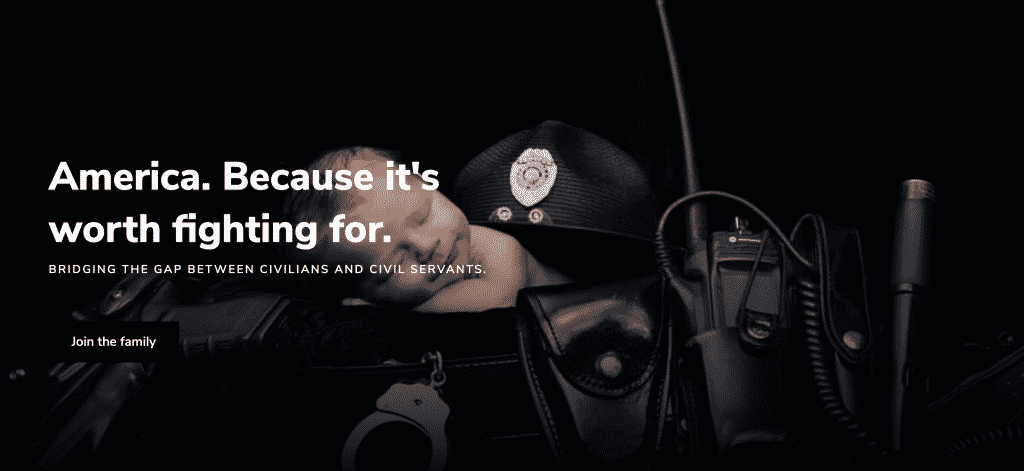USA- When you see the anti-police sentiment sweeping the country, it is largely being driven by the media, Democrats, and far-left radicals who make the claim that police are engaged in a virtual genocide against people of color, but primarily black men.
That storyline has led to a demonization of the police not seen in a generation, if ever. The worst part about that narrative? It is 100% false, and statistics bear that out.
Why then does the perception exist that the killing of black men by police is as common as people think it is? A recent study says that depends on your demographic makeup.
In fact, that study showed that the American people significantly overestimate the frequency with which black men are killed, and more so those beliefs are closely connected to their political affiliation.
Statistically, black men ages 25-29 are more likely—in fact five times more likely—to get killed in a traffic accident than they are getting killed by a police officer using any method of force.
Yet, eight out of ten black residents in responding to the survey believe young black men are more likely to get killed in a police shooting than in traffic accidents.
Conversely, blacks who voted for President Trump last November were much less likely to believe that young black men died at the hands of police than were killed in vehicular accidents.
Still, a majority of them…53% guessed incorrectly, which seemed to indicate that such a belief was not simply a matter of ideology. However among Biden voters, 81% were incorrect.
The study showed the demographic closest to getting the answer correct were white Trump voters, where only 15% incorrectly believed police killed more young black men than were killed in car accidents. For white Biden voters, the figure was 53%, and about 10 points higher than that for highly educated white liberals.
The surveys, which were conducted in November and December of last year were enclosed in a report on “The Social Construction of Racism in the United States,” conducted by University of London politics professor Eric Kaufmann. The data he collected on police killings and traffic deaths were gleaned from science journals and a highway insurance nonprofit.
Kaufmann’s study found that ideology, who respondents voted for in the presidential election, and their view on whether “white Republicans are racist” had more of an effect than race on a person’s answer to the question.
He noted that education made nearly no difference whatsoever in how black respondents answered—78% of non-college graduates and 76% of college graduates believed police shootings killed more young black men than traffic accidents.
However white (70%) and black (95%) respondents who held the belief that “white Republicans are racist” were the farthest off. Kaufmann noted his findings mirrored a recent survey series conducted by the Skeptic Research center, which showed “very liberal” Americans believed police killed at least 1,000 unarmed black men in 2019—which he called “a likely error of at least an order of magnitude.”
In fact, according to studies, only nine unarmed black men were killed by police in 2019.
Black Biden voters said at a rate of twice as many that they experienced more racism under the Trump administration than under Obama. Black Trump voters meanwhile reported “a consistent level of racism” under the two administrations.
In his study, Kaufmann explored the phenomenon of “moral panics.” One such moral panic is the issue of bigotry and bias. While clearly some bias does exist, the public’s perception of the extent has turned into one of those “moral panics.”
The belief is that white supremacy is running rampant, with a New York Times op-ed saying that “black people should fear for their lives when going for a jog.” That is of course absurd…or was absurd until the recent spike in crime.
Kaufmann says the misperception of racism exists in America has been driven by things such as critical race theory and intersectionality, which he said were previously restricted to graduate seminars. That however has now crept into corporate America, Silicon Valley tech companies, and into the public schools.
That spread has increased the belief that bigotry is everywhere, however data tells a different story. However because there is a widespread notion that racism is everywhere, including in our police departments, perception becomes reality. And with a complicit media complex as well as Democrats pushing the narrative, it makes it even more difficult to get the truth out.
Kaufmann lays the blame for the current state of race relations in the US as part of Tocqueville’s paradox…that while “measures of racist attitudes and behavior has never been more positive, pessimism about racism and race relations has increased in America.”
Why has this happened? “Ideology, partisanship, social media and education have inclined Americans to ‘see’ more bigotry and more racial prejudice” than previously.
He noted that so-called “increased” levels of racism under the Trump administration is more a measure of perception rather than reality. He also said that people perceived crime to be increasing over the past 25 years when in fact it has been declining.
To show how much something such as the critical race theory fallacy affects perception, Kaufmann said that by reading a passage from critical race theory author Ta-Nehis Coates “results in a significant 15-point drop in black respondents’ belief that they have control over their lives.”
One interesting statistic that emerged was that a slight majority of blacks and whites overall felt that political correctness on race is demeaning to blacks rather than necessary to protect them. Among political affiliation, 51% of liberals thought it was demeaning while 54% of conservatives believed so. However among whites, there was about a 20% divide between liberals and conservatives (43% liberals, 62% conservatives).
Another key factor Kaufmann found was that “exposure to social media and other media appears to be related to survey respondents’ view of both the national prevalence of racism and their personal experience of it.”
How much does media drive the perception of racism? His study found that between 2001-2014, nearly 70% of Americans believed race relations between blacks and whites were good.
However after the Michael Brown shooting in Ferguson, Missouri, that number dropped to 47%, and hovered in the low 50s between 2015 and 2019. Since the Black Lives Matter protests started last summer, that number has dropped down to 44%.
Likewise the study showed that approval of whites of interracial marriages rose from around 4% in 1958 to 84% in 2013. Where exactly is this systemic racism that supposedly exists in the United States? In addition, the share of intermarried newlyweds went from 3% in 1967 to 17% in 2015.
Kaufmann lays much of the blame for the misperception on race relations on social media. As he says, “the emergence and rapid spread of social media may account for this.
Combined with smartphone citizen journalists, social media mean that knowledge of white police on black suspect violence is more likely to circulate widely, where it can ignite riots and boost the salience of the race question.”
An example of that happened last year in Detroit, when a cellphone video of an encounter between Detroit police and a black suspect immediately circulated on Twitter, without context and where a second video of the incident later released showed the suspect pulling a gun on the police. However the damage was already done, and a small riot ensued.
Despite the fact that such incidents are declining in number, they are more likely to be captured live and get circulated and shared rapidly.
One survey seemed to confirm this with black respondents in 2016 were more likely to report experiencing discrimination than those not on social media. Kaufmann said on questions about whether blacks had experienced people acting suspicious of them or thinking that they are not smart, those on social media answered yes at a rate 20 points higher than not.
In conclusion, Kaufmann found that ideology and to a lesser extend social media exposure and university education heightened people’s perceptions of racism. In addition depression and anxiety are also tied into perceiving more racism.
One interesting conclusion reached was that liberal whites are more supportive of critical race theory than blacks, who more aspire to resilience. He also found that critical race theory had a detrimental effect on black’s feeling of being in control of their lives.
Finally, he found that around half of reported racism is either ideological or psychological in nature, and the increase in proportion of Americans believing racism is an important problem is for the most part socially constructed.
Want to make sure you never miss a story from Law Enforcement Today? With so much “stuff” happening in the world on social media, it’s easy for things to get lost.
Make sure you click “following” and then click “see first” so you don’t miss a thing! (See image below.) Thanks for being a part of the LET family!




